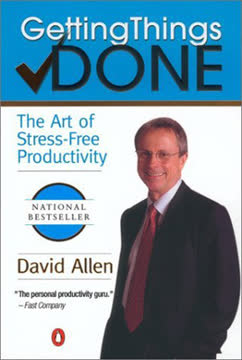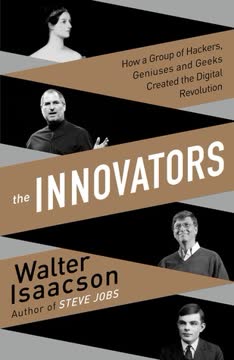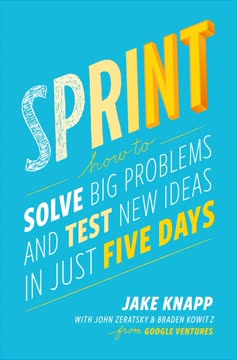Key Takeaways
1. Freelancing: The Ultimate Freedom in Business
"Freedom that is not widely applied easily dies. This is why I say that you too speak for freedom by doing business."
Freedom with responsibility. Freelancing offers unparalleled freedom in choosing your work, clients, and schedule. However, this freedom comes with the responsibility of managing your own business, from finances to client relationships. Freelancers are the captains of their own ships, navigating the seas of opportunity and challenge.
Diverse opportunities. The freelance market spans various industries and skills, from creative fields to technical expertise. This diversity allows professionals to find niches that align with their passions and strengths. Examples include:
- Writing and content creation
- Graphic design and illustration
- Web development and programming
- Consulting and coaching
- Digital marketing and SEO
Challenges and rewards. While freelancing offers flexibility and autonomy, it also presents unique challenges such as income instability and self-motivation. The rewards, however, can be significant:
- Higher earning potential compared to traditional employment
- Work-life balance tailored to personal preferences
- Opportunity to build a personal brand and reputation
- Continuous learning and skill development
2. Building a Stellar Reputation: Your Most Valuable Asset
"A good name is an established association of quality between the professional as a person and their area of expertise."
Reputation is currency. In the freelance world, your reputation is your most valuable asset. It's the culmination of your work quality, reliability, and professional conduct. A strong reputation can:
- Attract high-quality clients
- Command higher rates
- Lead to consistent work through referrals
- Open doors to new opportunities
Building blocks of reputation:
- Consistency in delivering high-quality work
- Meeting or exceeding deadlines
- Clear and effective communication
- Professionalism in all interactions
- Going above and beyond client expectations
- Continuous skill improvement and learning
Long-term perspective. Building a stellar reputation takes time and patience. It's not about quick wins but consistent performance over years. Each project, no matter how small, contributes to your overall reputation. Remember, one negative experience can potentially undo multiple positive ones, so maintain high standards in all your work.
3. Success in Freelancing: A Marathon, Not a Sprint
"Holding on for 2 years + Expertise + A good name + Cooperation + Satisfaction + Profitability"
Persistence pays off. Success in freelancing doesn't happen overnight. It requires persistence, patience, and a long-term perspective. The first two years are often the most challenging, as you build your client base, refine your skills, and establish your reputation.
Key components of long-term success:
- Developing deep expertise in your field
- Building a strong professional network
- Consistently delivering high-quality work
- Maintaining client satisfaction
- Ensuring profitability through smart business practices
Continuous improvement. Successful freelancers never stop learning and adapting. They:
- Stay updated with industry trends
- Invest in skill development
- Seek feedback and learn from mistakes
- Adjust their strategies based on market demands
- Cultivate resilience to weather ups and downs
4. Mastering Personal Productivity: The Key to Freelance Success
"Resistance will tell you anything to keep you from doing your work. It will perjure, fabricate, falsify, seduce, bully, cajole."
Overcoming internal resistance. Productivity in freelancing isn't just about managing time; it's about overcoming internal resistance. This resistance can manifest as procrastination, self-doubt, or distractions. Recognizing and addressing these internal obstacles is crucial for maintaining consistent productivity.
Strategies for enhancing productivity:
- Establish a structured daily routine
- Set clear, achievable goals
- Use time-tracking tools to understand work patterns
- Implement the Pomodoro Technique for focused work sessions
- Create a dedicated workspace to minimize distractions
- Practice regular self-reflection and adjustment of work habits
Balancing work and life. Effective productivity isn't about working non-stop. It's about finding the right balance between work and personal life. This balance ensures sustained energy and creativity, preventing burnout and maintaining long-term success in freelancing.
5. Leveraging Technology: The Modern Freelancer's Toolkit
"You can't hack your way to a good name. If you try to, you might become known, but not renowned."
Tech as an enabler. Technology is a powerful enabler for freelancers, providing tools for productivity, communication, and business management. However, it's crucial to remember that technology should enhance your work, not define it. Your reputation and skills remain the core of your freelance business.
Essential tech tools for freelancers:
- Project management: Trello, Asana, Basecamp
- Time tracking: Toggl, RescueTime
- Communication: Slack, Zoom, Google Meet
- Cloud storage and collaboration: Google Drive, Dropbox
- Accounting and invoicing: QuickBooks, FreshBooks
- Portfolio and networking: LinkedIn, Behance, GitHub
Cybersecurity awareness. As a freelancer, protecting your digital assets and client information is crucial. Implement strong security practices:
- Use strong, unique passwords for all accounts
- Enable two-factor authentication
- Regularly backup your data
- Use a VPN when working from public networks
- Keep your software and operating systems updated
6. Collaborative Power: Building Your Freelance Network
"Hermits pay for their isolation."
Network is net worth. Building a strong professional network is crucial for long-term success in freelancing. Your network can provide:
- Referrals and job opportunities
- Collaboration on larger projects
- Knowledge sharing and skill development
- Emotional support and mentorship
Strategies for effective networking:
- Attend industry events and conferences
- Join professional associations and online communities
- Collaborate on projects with other freelancers
- Offer help and support to others in your network
- Maintain regular contact with past clients and colleagues
- Share your knowledge through blog posts, webinars, or speaking engagements
Quality over quantity. Focus on building meaningful relationships rather than collecting a large number of superficial connections. Cultivate a diverse network that includes peers, potential clients, and mentors in your field.
7. Client Management: The Art of Nurturing Professional Relationships
"You're only as good as your clients."
Client-centric approach. Successful freelancers understand that client management goes beyond delivering quality work. It involves building strong, long-lasting relationships based on trust, communication, and mutual benefit.
Key aspects of effective client management:
- Clear communication of expectations and deliverables
- Regular updates on project progress
- Proactive problem-solving and issue resolution
- Adaptability to client needs and feedback
- Going above and beyond to exceed expectations
- Maintaining professionalism even in challenging situations
Long-term perspective. View each client interaction as an opportunity to build a long-term relationship, not just a one-off project. Satisfied clients can become:
- Sources of repeat business
- Valuable referrals to new clients
- Testimonials for your marketing efforts
8. Pricing Strategies: Maximize Your Value and Income
"Pricing is the most undervalued and neglected skill in freelancing."
Value-based pricing. Move beyond hourly rates to pricing based on the value you provide to clients. This approach allows you to earn more while delivering high-value solutions. Consider factors such as:
- The client's budget and potential ROI
- The complexity and uniqueness of the project
- Your expertise and reputation in the field
- The time and resources required
Pricing strategies to consider:
- Tiered pricing options for different service levels
- Package deals for bundled services
- Retainer agreements for ongoing work
- Project-based pricing for defined scope work
- Value-based pricing for high-impact projects
Regular price reviews. Continuously assess and adjust your pricing strategy. As your skills and reputation grow, your prices should reflect your increased value. Don't be afraid to raise rates for new clients and renegotiate with existing ones.
9. Navigating Financial Uncertainty: The Freelancer's Challenge
"The first obligation of any individual aspiring to a career in any field is to do his due diligence. Educate yourself about the business side of your chosen vocation."
Financial planning is crucial. The irregular income of freelancing necessitates careful financial management. Create a robust financial plan that includes:
- Emergency fund covering 3-6 months of expenses
- Separate business and personal accounts
- Regular contributions to retirement savings
- Budgeting for taxes and insurance
- Diversification of income streams
Strategies for financial stability:
- Maintain a mix of long-term and short-term projects
- Develop passive income sources (e.g., digital products, courses)
- Consider retainer agreements for steady income
- Plan for seasonal fluctuations in your industry
- Continuously market your services, even during busy periods
Professional development. Invest in your skills and knowledge to increase your value and earning potential. This can include courses, certifications, or attending industry conferences.
10. Continuous Growth: Staying Relevant in a Changing Market
"Freelancing isn't the type of business where you pour blood on the altar of success for years. If you don't feel like you're in your own skin, something is definitely wrong, and you can be sure that others will sense it as well."
Adapt and evolve. The freelance market is constantly changing, with new technologies, trends, and client needs emerging. Successful freelancers are those who adapt and evolve with these changes.
Strategies for continuous growth:
- Stay informed about industry trends and developments
- Regularly update your skills and knowledge
- Seek feedback from clients and peers
- Experiment with new tools and techniques
- Diversify your service offerings as market demands change
- Cultivate a growth mindset, viewing challenges as opportunities
Balance specialization and versatility. While developing deep expertise in your niche is important, maintain enough versatility to adapt to market shifts. This balance allows you to capitalize on your strengths while remaining flexible in a changing landscape.
Last updated:
Review Summary
The Freelance Way by Robert Vlach is highly praised as an essential, comprehensive guide for freelancers at all stages. Readers appreciate its practical tips, ethical approach, and thorough coverage of freelancing aspects. Many consider it a "bible" for independent professionals, offering valuable insights on pricing, marketing, and business management. The book's depth and readability are commended, with some noting it could be condensed. Overall, reviewers found it immensely helpful in improving their freelance careers and highly recommend it to both beginners and experienced freelancers.
Similar Books










Download PDF
Download EPUB
.epub digital book format is ideal for reading ebooks on phones, tablets, and e-readers.




